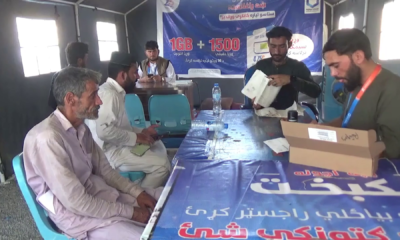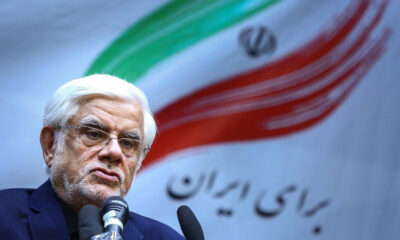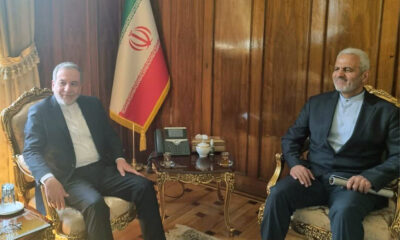Latest News
Al-Qaeda operating across Afghanistan: Report
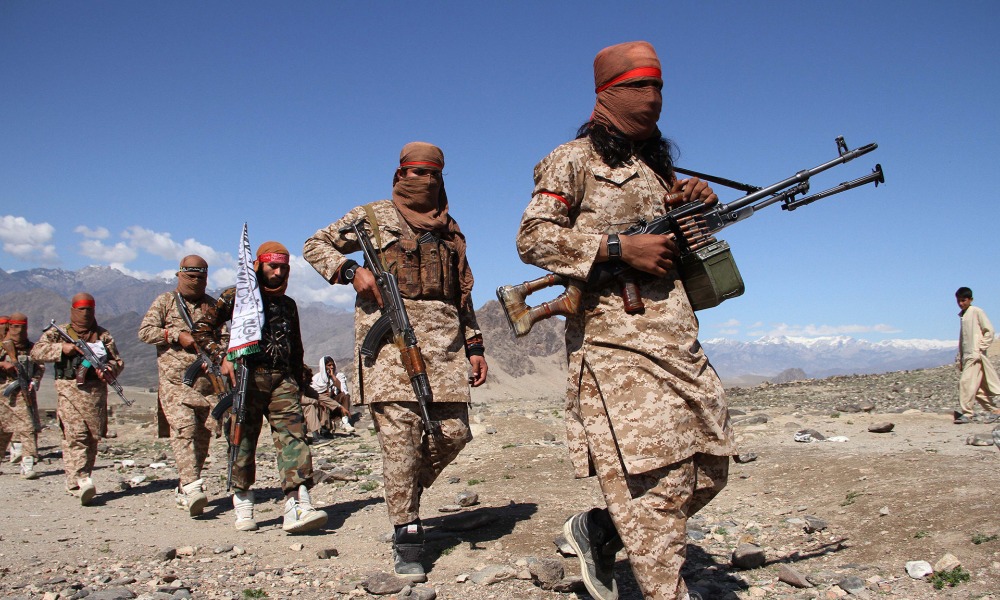
Al Qaeda and its regional branch, Al Qaeda in the Indian Subcontinent, continue to operate across Afghanistan despite repeated claims by the Taliban that the group has no presence in the country, the Long War Journal said in a report.
According to the report, Al Qaeda’s enduring presence in Afghanistan is visible both through press reporting on Coalition operations against the terror group, and Thabat, Al Qaeda’s own media arm that has noted the group’s operations in 18 provinces.
“Afghan security forces have targeted Al Qaeda operatives in two additional provinces. In all, Al Qaeda is operating in at least 21 of Afghanistan’s 34 provinces,” the report said.
Thabat, a weekly Al Qaeda newsletter that covers its operations across the globe and is analogous to the Islamic State’s Al Naba news service, has noted multiple reports of Al Qaeda’s activities in Afghanistan. Thabat is described by the United Nations Analytical Support and Sanctions Monitoring Team as “one of the group’s [Al Qaeda’s] media arms.”
While the Taliban, on its official website Voice of Jihad, reports on dozens of attacks daily against Afghan security forces and government targets, Thabat only reports on attacks in which Al Qaeda in the Indian Subcontinent, as well as allied groups such as the Islamic Jihad Union, the Islamic Movement of Uzbekistan, Lashkar-e-Taiba, Jaish-e-Mohammed, Katibat Imam Bukhari, Jamaat Ansarullah, and others, are directly involved.
An analysis of 16 issues of Thabat (issues 3 through 18) shows that Al Qaeda and its constellation of allies in Afghanistan have been involved in dozens of attacks from Nov. 2020 to the present day in 18 of Afghanistan’s provinces.
The provinces where Thabat reported on operations are Badakhshan, Balkh, Farah, Faryab, Ghazni, Helmand, Jawzjan, Kapisa, Kabul, Kandahar, Kunar, Kunduz, Khost, Logar, Nangarhar, Takhar, Uruzgan, and Zabul.
The Journal stated that the Afghan press reports from Sept. 2020 to the present confirms that Al Qaeda and its allies are operating in seven of the provinces noted by Thabat, the Long War Journal reported.
Those provinces are Badakhshan, Farah, Ghazni, Helmand, Kapisa, Kunar, and Nangarhar. Additionally, Afghan security forces targeted Al Qaeda in two other provinces that were not mentioned by Thabat: Nimroz and Paktika.
“There are over a dozen press reports noting Al Qaeda’s operations in the nine provinces. For instance, in late March 2021, Afghanistan’s National Directory of Security killed Abu Muhammad al Tajiki, a senior AQIS military commander in Paktika province. Also, in July 2020, Afghan officials noted that Al Qaeda was operating a training camp in southern Helmand and also operating in Nimruz,” the report read.
According to the report, the information is consistent with the previous reporting on Al Qaeda’s presence in Afghanistan.
“In July 2020, the United Nations Security Council Analytical Support and Sanctions Monitoring Team reported that Al Qaeda “is covertly active in 12 Afghan provinces: Badakhshan, Ghazni, Helmand, Khost, Kunar, Kunduz, Logar, Nangarhar, Nimruz, Nuristan, Paktiya and Zabul.” This corresponds to nine of the 18 provinces mentioned by Thabat (Badakhshan, Ghazni, Helmand, Khost, Kunar, Kunduz, Logar, Nangarhar, and Zabul).”
The Analytical Support and Sanctions Monitoring Team noted that AL Qaeda is estimated to have between 400 and 600 operatives in Afghanistan, the report said.
In May 2019, General Austin Miller, the commander of Resolute Support Mission and US Forces – Afghanistan, noted that Al Qaeda is operating “across the country” and not confined to one region.
“We have seen al-Qaeda in Afghanistan. Yes, in different parts of Afghanistan,” Miller said at the time quoted by the Journal.
“In different parts of Afghanistan, we can find them, so it’s not one particular region, it’s across the country,” Miller stated.
In March 2019, the Analytical Support and Sanctions Monitoring Team estimated that Al Qaeda was operating in 13 of Afghanistan’s 34 provinces.
“FDD’s Long War Journal has tracked al Qaeda’s presence in Afghanistan for well over a decade, using press releases and public statements from the US military, NATO’s command in Afghanistan, and Afghan security services, as well as the jihadist groups’ own martyrdom statements,” the report said.
“The data clearly shows that al Qaeda and allied terrorist groups have been operating on Afghan soil for the past two decades with the approval of the Taliban. These terrorist organizations often operate in areas controlled by the Taliban – and the jihadists killed in coalition or Afghan raids often die alongside members of the Afghan Taliban.”
“Between 2007 and 2019, NATO, US, and Afghan forces have launched at least 373 operations against these foreign terror groups in 27 of Afghanistan’s 34 provinces. Many of the raids against Al Qaeda and its allies have gone unreported,” the report concluded.
Latest News
AWCC distributes free SIM cards to returning refugees from Pakistan
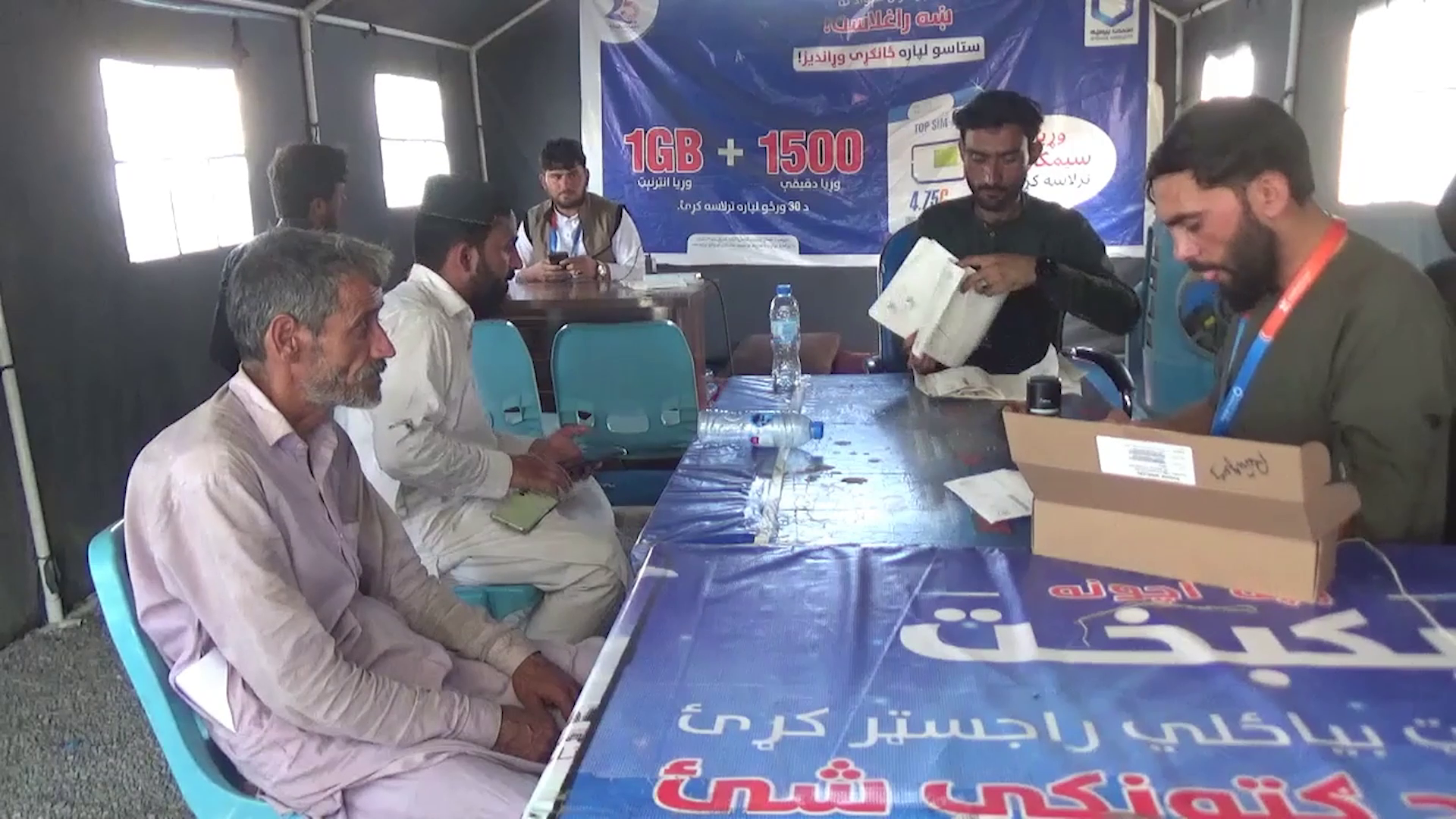
Following the intensification of the deportation process of refugees from Pakistan, Afghan Wireless Communication Company (AWCC) has started distributing free mobile phone SIM cards to returnees, in addition to providing telecommunications and internet services.
AWCC officials said they are also offering free voice calls and internet packages for the migrants.
“We are distributing SIM cards to the migrants being deported from Pakistan,” said Ibrarullah Zahir, the Sales Manager of AWCC in the eastern zone.
The company’s officials emphasized that they are offering these free telecommunications and internet services to returnees as part of the company’s social responsibility initiatives.
Meanwhile, local authorities in Nangarhar called on all telecom networks to provide 24-hour services to returnees.
Zabihullah Zaki, the head of the Telecommunications and Information Technology Department in Nangarhar, said they are monitoring the situation of the migrants and added that telecommunications companies are cooperating in this regard.
Attaullah Sahil, head of AWCC in the eastern zone, said the company’s teams are available 24/7 to provide services to returning migrants in the area.
Meanwhile, returnees have welcomed AWCC’s initiative of distributing SIM cards to them and for other free services.
Pakistan has this month ramped up its campaign to deport hundreds of thousands of Afghan refugees, many of whom have lived in that country for decades.
Return refugees have, however, reported that Afghans in Pakistan are facing increasing harassment and the confiscation of their belongings by Pakistani authorities.
Latest News
Trump slams Biden over America’s disastrous withdrawal from Afghanistan
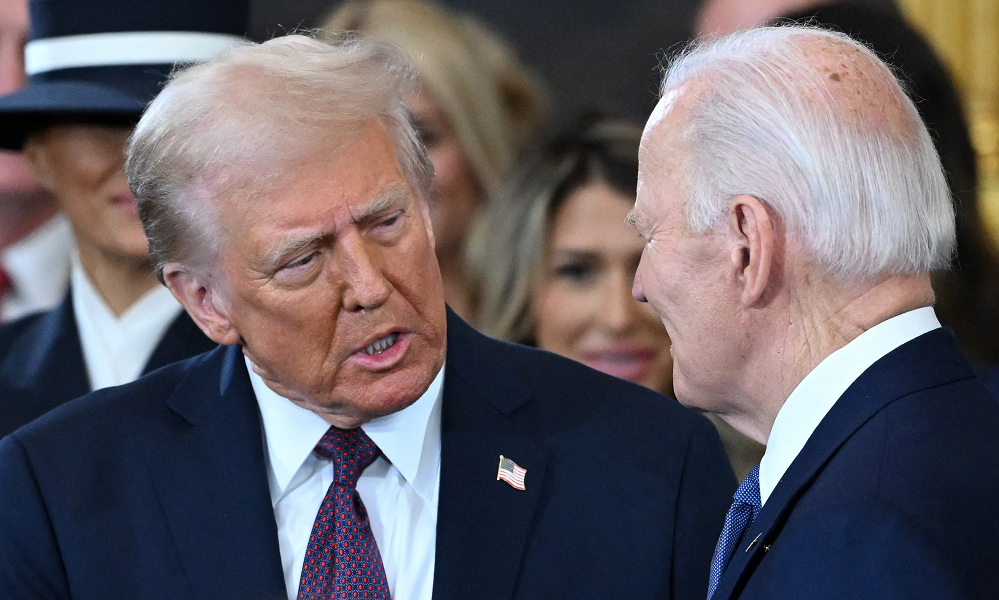
President Donald Trump on Tuesday night slammed the Joe Biden administration’s chaotic withdrawal from Afghanistan, calling it “the most embarrassing moment in the history of our country”.
Trump said had he been president in 2021, “the disaster would have never happened”.
Addressing the National Republican Congressional Committee Dinner on Tuesday, April 8, Trump said he would have still pulled out troops as he had planned but he would have held on to Bagram Air Base.
As one of the biggest air bases in the world, he said he would have kept it “not for Afghanistan but because it’s one hour away from where China makes its nuclear weapons.”
He stated, “China now occupies it”.
He slammed Biden for being “stupid” and criticized him for evacuating through Kabul International Airport in August 2021, instead of through Bagram.
Trump said: “They left from a local little airport, which was crowded like crazy.
“The bomb went off and decimated hundreds of people. Killed hundreds. We lost 13 soldiers. But we also had 42 or 48 horribly injured — arms, legs, faces. Horribly injured,” he said, referring to the Abby Gate suicide bombing that took place on August 26 outside the crowded airport.
More than 170 Afghans were killed in the explosion and 13 American soldiers also died.
Trump said this happened “all because we had a stupid leader,” adding that the incident should never have happened.
Latest News
Iran’s Vice President advocates stronger ties with neighbors, especially Afghanistan
Mohammad Reza Aref stated that neighboring countries such as Afghanistan and Pakistan provide great opportunities for Iran’s border provinces, including Khorasan Razavi.
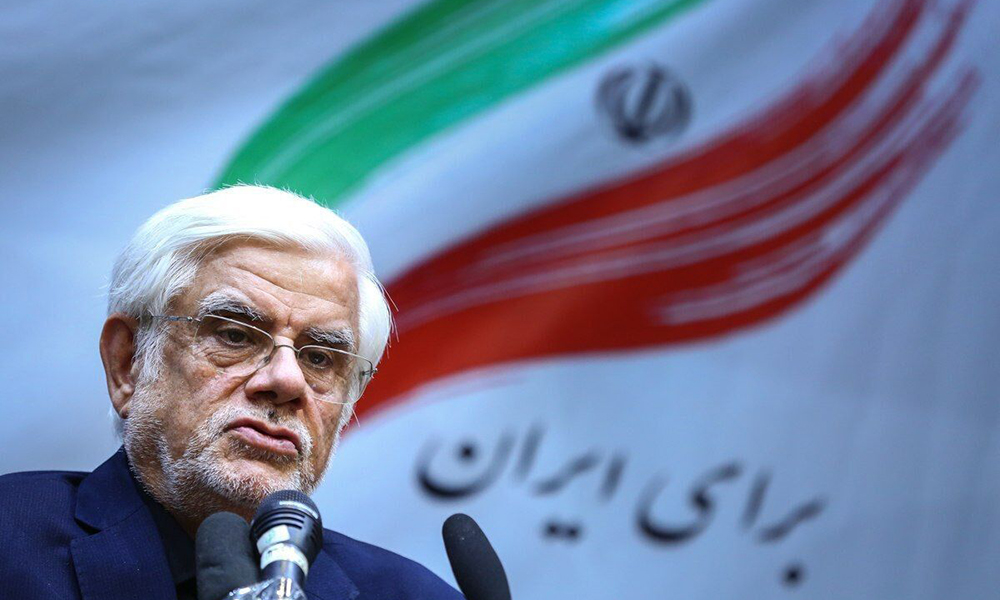
Iran’s Vice President has called on his government to strengthen relations with neighboring countries, especially Afghanistan.
Mohammad Reza Aref stated that neighboring countries such as Afghanistan and Pakistan provide great opportunities for Iran’s border provinces, including Khorasan Razavi.
He said governors of border provinces played an important role in strengthening ties with neighbors and in light of this, Tehran will look at enhancing the status of these provinces and promote them in trade dealings with neighbors.
Iran has been stepping up contact with Afghanistan’s rulers as part of a concerted bid to strengthen ties. While Tehran has not yet officially recognized the Islamic Emirate government, commentators have noted that this could soon change.
Regular meetings between Afghan and Iranian officials have been taking place – especially around boosting bilateral trade.
In the latest initiative, Mohammadreza Nazeri, Iran’s Director-General of the Office of Economic Coordination, met with Shafiullah Azam, Director General of Economic Cooperation of the Afghan Ministry of Foreign Affairs, in Kabul and discussed economic relations between the two countries.
Iran is one of Afghanistan’s most important economic partners, and trade volume between the two countries has increased to $4 billion; $55 million in exports from Afghanistan and $3.311 billion in imports.
-
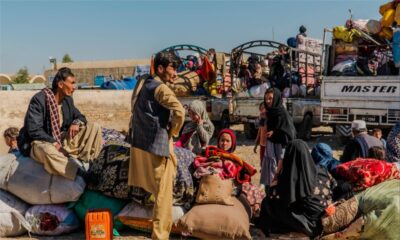
 Latest News4 days ago
Latest News4 days agoUN rights experts call on Pakistan to stop removal process of Afghan refugees
-

 Latest News5 days ago
Latest News5 days agoUS has no plans for reopening of its embassy in Kabul
-

 Science & Technology4 days ago
Science & Technology4 days agoMeta releases new AI model Llama 4
-
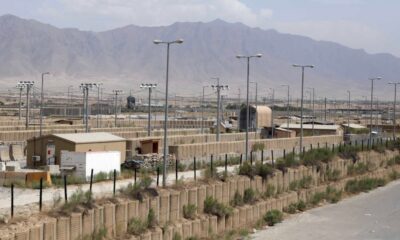
 Latest News3 days ago
Latest News3 days agoIEA rejects reports of US military planes landing at Afghanistan’s Bagram Air Base
-

 Regional5 days ago
Regional5 days agoIsraeli troops expand ‘security zone’ in northern Gaza
-

 Latest News5 days ago
Latest News5 days agoPakistan urges global community to block arms flow to militant groups in Afghanistan
-

 Sport4 days ago
Sport4 days agoAfghanistan Under-19s beat Nepal by 1 run in second ODI, win series
-

 World4 days ago
World4 days agoAnti-Trump protesters gather in Washington, other US cities


